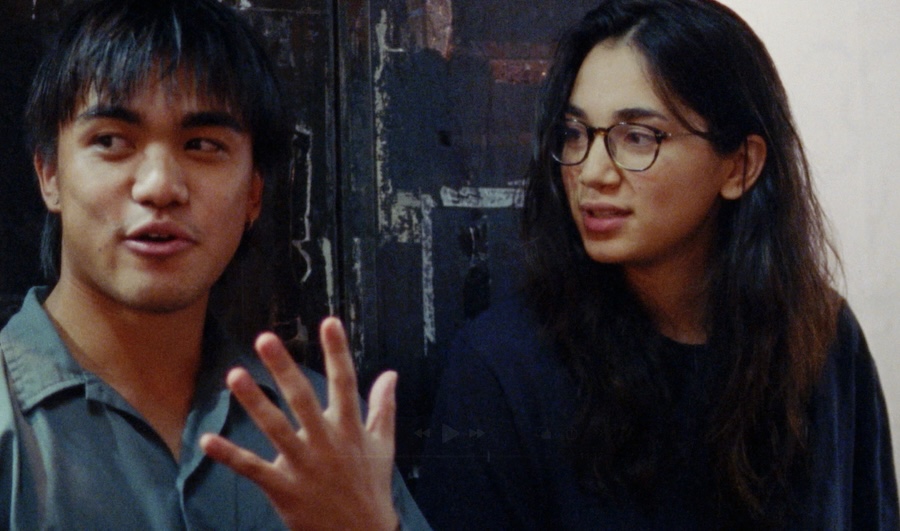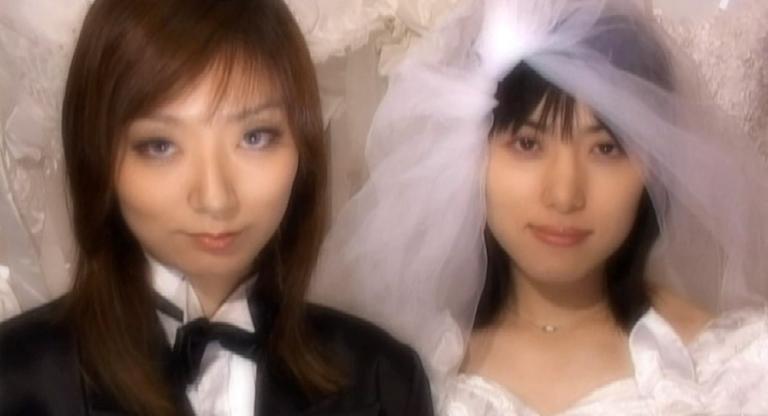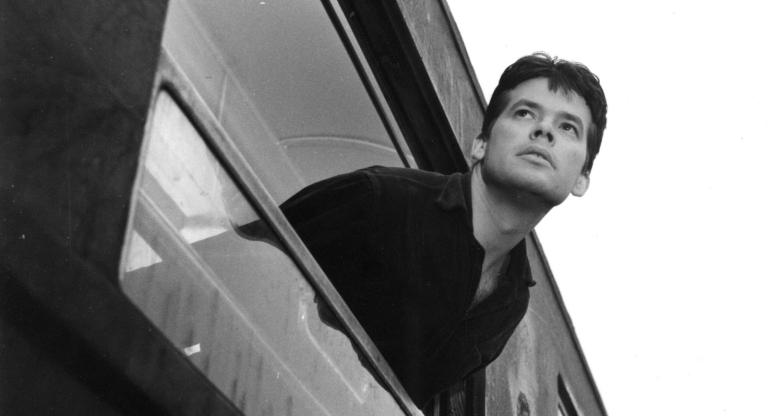Haven’t you heard the news? Mumblecore has officially entered its quarter life. As evidenced in the lives of the genre’s characters, such a milestone can provoke some existential panic, or at least a moment of reflection: Where am I going? What am I for? Has it all been worth it? Why is my whole world saturated with white people? These might be some of the questions mumblecore is asking itself. The beginnings of a theory of mumblecore might be afoot.
Softshell, Jinho Myung’s debut feature, submits its own theory. The film follows Thai-American brother and sister Jamie (Caledonia Abbey) and Narin (Legyaan Thapa) in and around New York in the days following their mother’s funeral. Myung’s film (along with the cinematography by Rhys Scarabosio) knows what it’s after. More Bujalski than Safdie (which is to say more melancholic than anxious), Softshell delivers the primary formal components of mumblecore: the quotidian built environments of urban and exurban American landscape, the anachronism of warm, grainy celluloid fuzz shot in low light, a smattering of random guys who look a bit fucked up (here, they get their own animated psychedelic interlude), and splutterings and pregnant pauses from the main players all the while. Historically, this might have been enough for a different micro-budget independent movie to stake its claim on.
Softshell moves beyond this, though, extracting these formal components and exposing the latent meaning running underneath the surface. Myung is interested in the possibility of the mumble as inherent to the contemporary Asian-American experience, especially in regard to first and second-generation young people who mediate between family traditions and the deracinated textures of the multicultural nation. Per Myung: “When I think about my experience being Asian-American, a lot of it comes down to the unsaid. It’s more about how we look at things.” In Softshell, a stutter or a lump in the throat stands in for something much deeper and wider than the pathologies of the white neurotics of yesteryear’s mumblecore.
But perhaps above all, Softshell posits a theory of mumblecore as something rather deathly; it hangs onto the analog with a suffocating grip as the rest of the world barrels toward the digital. At every turn, Myung lets the interactions of his main characters fester and bloom. Leaving the funeral, a lunatic on the subway provokes Narin and Jamie; rather than move cars, Narin remains with the stranger, poking and grabbing at his stomach and accidentally spilling his mother’s ashes in the process. During dialogue, Scarabosio’s camera floats between the speakers at close range, never cutting, watching the gurgle of a thought die in the mouth before it’s ever expressed. Jamie and Narin watch TV; without breaking eye contact with the screen, Jamie tells Narin that the stench of death still hangs in their mother’s room. “I know,” Narin replies, and his tone betrays something like boredom. Baudrillard spoke of overproximity as the essence of modernity– in Softshell, this claustrophobia is reformulated as an act of love in grief. It might be what we owe each other.
Softshell screens Sunday, May 11, at the Roxie Theater, as part of CAAMFest 2025.



